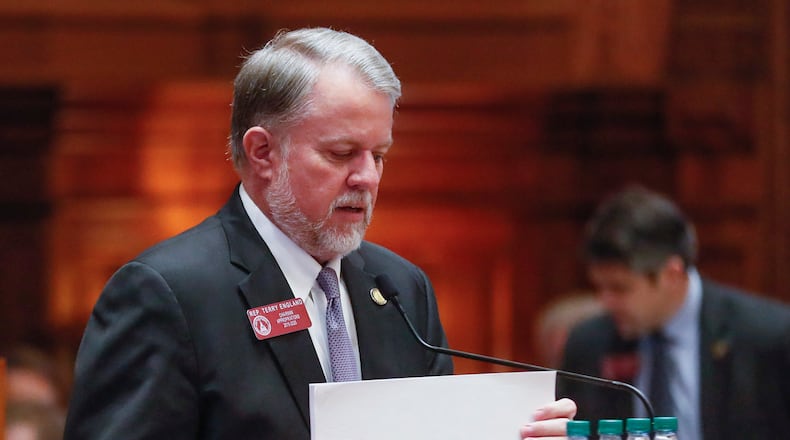The Georgia House took a key step Thursday toward making it possible to suspend the 2021 session if necessary when it passed a spending plan to run the state through June 30.
Under state law, legislators must pass a budget for the rest of this fiscal year and fiscal 2022, which begins July 1, before the end of their annual session.
House and Senate leaders suspended the 2020 session in March once the COVID-19 pandemic hit Georgia. Legislators returned in June to complete their work.
With COVID-19 continuing to sicken and kill thousands, House Appropriations Chairman Terry England, R-Auburn, said lawmakers wanted to quickly approve a midyear budget through June in case lawmakers have to suspend the 2021 session.
Lawmakers and staffers are tested twice a week during the session — which opened Jan. 11 — and several have tested positive in the first few weeks.
House Speaker David Ralston, R-Blue Ridge, said, “It’s a precarious situation we are in.
“Last year we had to suspend the session, and we resolved early on (this year) that we needed to get the amended budget done so if we have that situation again, the state can function at least through the end of the fiscal year.
“We did emphasize full speed ahead.”
But Ralston also said COVID remains constantly on the minds of lawmakers as they try to keep the session “moving forward.”
“In the last 24 hours, I have lost two friends,” he said. “Everybody is losing friends, family members. We have to keep that on the front burner.”
The midyear budget — which increases spending by $654 million — now heads to the Senate for its consideration.
The largest increase is in education, where the House is going along with Gov. Brian Kemp’s proposal to backfill 60% of the spending reductions lawmakers approved last year, when they cut 10% because of fears that state revenue would plummet due to the pandemic. That didn’t happen.
The state would also pay for 500 new school buses. About one-third of the 15,000 in service statewide have exceeded their recommended life span, England said.
The spending plan puts millions into adding high-speed internet in rural areas, provides 10% raises for corrections and juvenile justice guards, and supports nursing homes hit hard by COVID.
Kemp and lawmakers have faced criticism in recent weeks for not boosting state funding for the Department of Public Health before and during the COVID-19 pandemic.
Demands on local health agencies, and on Georgia’s public health system in general, have increased in recent years. Public health advocates have long complained about inadequate funding for AIDS/HIV prevention, controlling chronic illnesses and other needs.
The state has collected a little more than $1 billion in additional federal funding, which has paid for such virus-related expenses as private laboratory testing, operation of the state’s labs, temporary “surge” staffing, personal protective equipment and an isolation unit for people who contracted the coronavirus. The federal money also covered expenses by the state’s 159 county health departments, which normally depend on state appropriations.
House budget writers added money for a chief medical officer, deputy commissioner and a chief data officer. They also added $18 million to quickly modernize the computer system that tracks immunizations statewide, which health officials say wasn’t designed to deal with a pandemic and which has been heavily criticized.
England said the Senate could add more funding to the public health department as well.
About the Author
Keep Reading
The Latest
Featured




